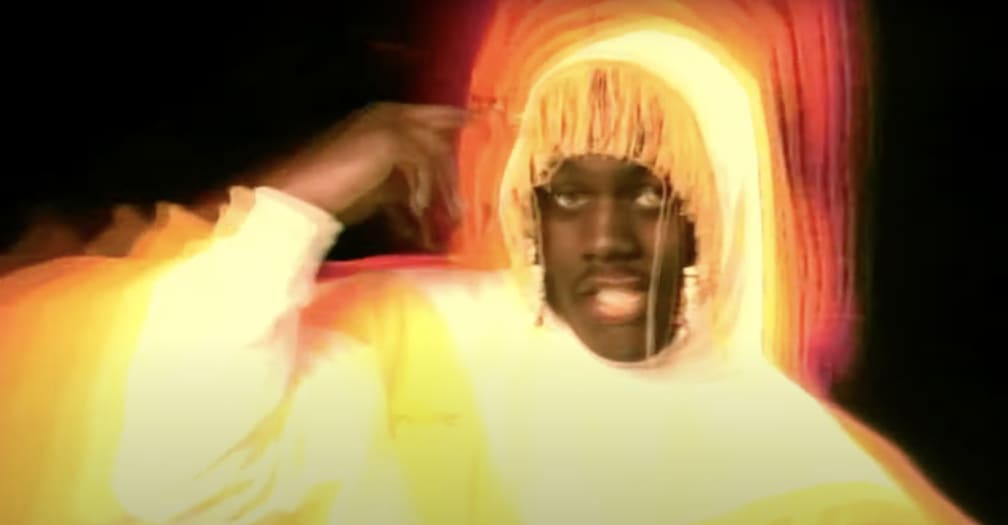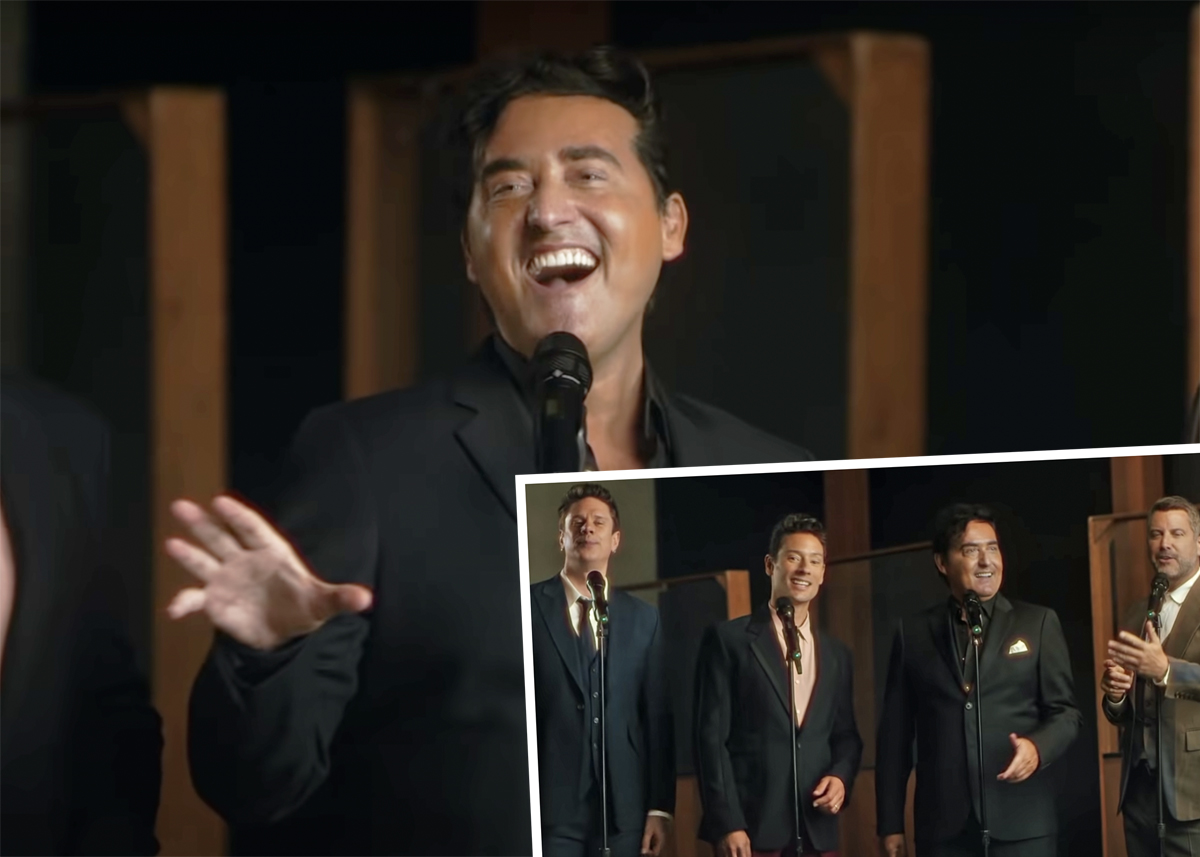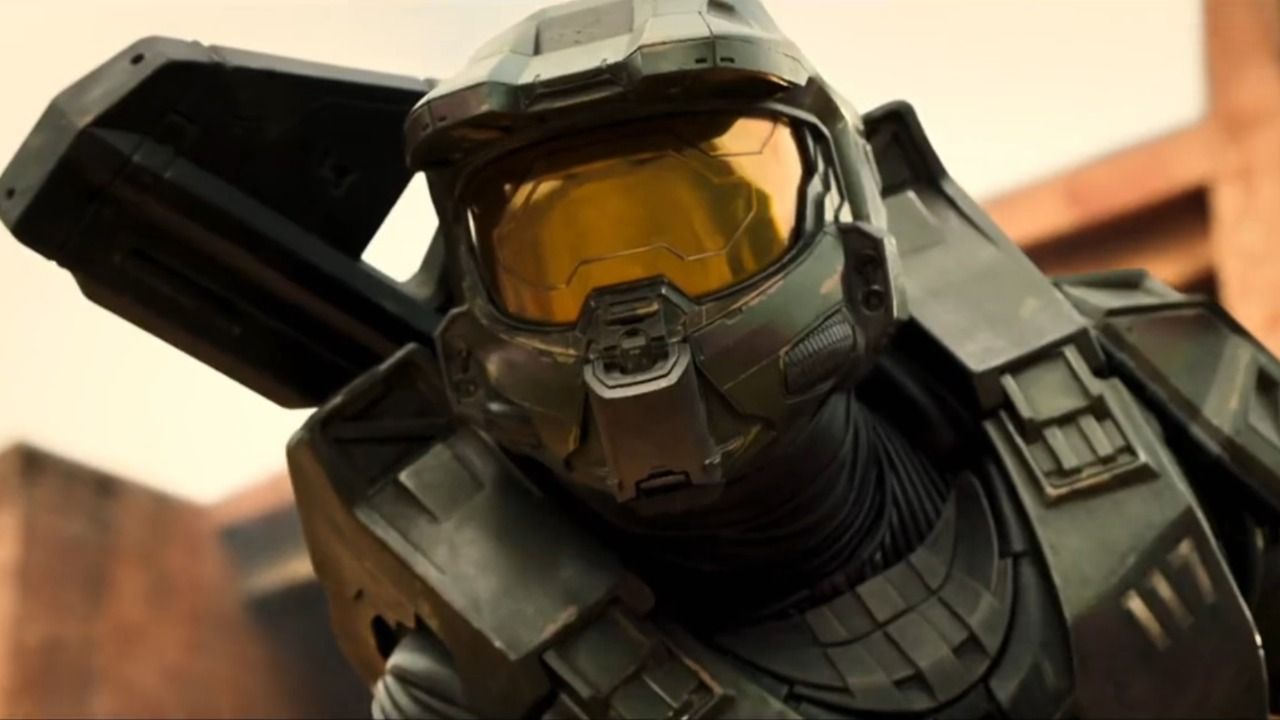#LGBTQ Representation on TV: Stars Talk the Past, Present & Future for Comic-Con@Home

Table of Contents
“#LGBTQ Representation on TV: Stars Talk the Past, Present & Future for Comic-Con@Home”
For the retrospective chat, Halterman recruited the actors behind some of TV’s most beloved LGBTQ characters, including Harry Shum, Jr. (Magnus Bane, Shadowhunters), Jamie Clayton (Nomi Marks, Sense8), Wilson Cruz (Hugh Culber, Star Trek: Discovery), and Tatiana Maslany (Cosima Niehaus, Orphan Black).
Also on hand for the panel? Anthony Rapp (Paul Stamets, Star Trek: Discovery), Jamie Chung (Mulan, Once Upon A Time), J. August Richards (Oliver Post, Council of Dads), and Brian Michael Smith (Paul Strickland, 9-1-1: Lone Star). Scroll down to find out what they all had to say about their past and present characters, their storylines, and what they’re hoping to see from television in the future.
The Past
Cruz first saw himself represented on TV when he portrayed the character of Rickie Vasquez on ABC’s My So-Called Life, a role he hears about “every day” as people discover the 1994-1995 series. “I was fully aware of how important that role was going to be for people because I understood how important it was going to be for me,” he shares. “I understood how much I wanted and needed to see myself and my lived experience represented in some way, so that I could know that I was going to be alright, that my life mattered, that stories like mine were worthy of being told.” He’s proud that he could do that for others, as well, and he hopes to champion for LGBTQ young people of color since they’ve been “invisible for so long.”
Meanwhile, Mulan on Once Upon a Time was one of Chung’s “favorite roles to play,” she says. She adds that creators Adam Horowitz and Eddy Kitsis had wanted to include an LGBTQ character on the ABC series, and with Mulan, it “happened organically.” The relationship that developed between Mulan and Aurora (Sarah Bolger) “couldn’t be ignored,” Chung continues. “It just felt right.”
Maslany played many clones on BBC America’s Orphan Black, but it was Cosima’s relationship with Delphine Cormier (Evelyne Brochu) that really resonated with fans, something the actress realized when she attended Comic-Con after Season 1. Cosima helped fans “speak to their parents about who they are,” which she found to be “really eye-opening.”
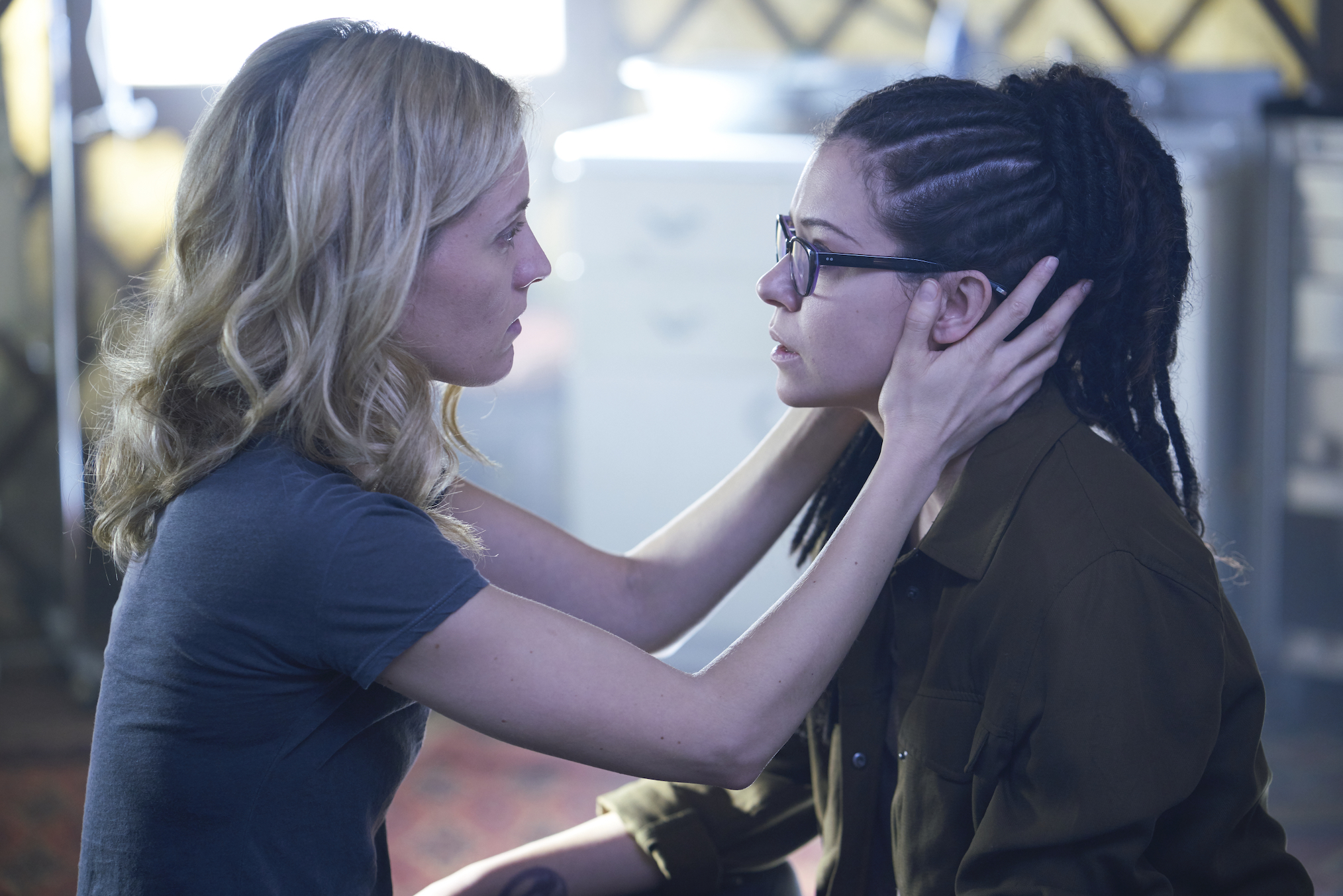
Evelyne Brochu as Delphine and Tatiana Maslany as Cosima on Orphan Black (Ken Woroner/BBC AMERICA)
“I’ve always moved through the world with a lot of privilege and to be able to see that impact was so incredible,” Maslany admits. “Our show was about identity and the myriad ways we express ourselves, are human, and to have a sexuality as a key part of that explanation was a no-brainer.”
For Clayton, her role on Netflix’s Sense8 was “the most beautiful layered cake of all these amazing experiences” because “I’m a woman of trans experience and I was playing a woman of trans experience, written by a woman of trans experience [Lana Wachowski], and also being directed by her and her sibling [Lilly Wachowski], who at the time wasn’t out yet but who is also now a woman of trans experience.
“I was hoping that people wouldn’t be turned off by the show just because I was on it, my character was trans and a lesbian and had a girlfriend who was a woman of color,” she admits. “I was hoping that people would watch and learn the difference between gender identity and sexuality, just simple things that so many people still don’t understand.”
Over on Freeform for the network’s supernatural drama Shadowhunters, Shum’s bisexual warlock Magnus was one half of the fan-favorite couple “Malec” alongside Matthew Daddario’s Alec Lightwood. What was important for the actor was that the Magnus-Alec relationship wasn’t “watered down” or “just TV-friendly.” He wanted to have conversations about sexuality and how it’s handled in the conservative Shadow World. He noted that the show’s dialogue, which at one point had Magnus talking about falling in love with the soul not gender, can lead the audience to think beyond what they’ve been told in other shows. Plus, the series highlighted the domestic side of the relationship, which doesn’t often happen on sci-fi or fantasy shows.
Richards’ Council of Dads was canceled after one season, but it was his participation in the NBC drama that led to him coming out as gay. “If I was going to play this role — and I aspire to do a certain level of work — I was going to have to bring all of my experiences to the table and be able to talk very specifically about the intersection of being a Black man and a gay man in the world” and especially in the drama’s location (the South), he explains. Prior to the role, Richards “was having such difficulties navigating the business as a Black actor,” but this was a “natural evolution” to past conversations about Black male humanity. (He also notes that Wilson Cruz was part of his journey and “a wonderful friend and somebody that I could lean on and talk to and rely on.”)
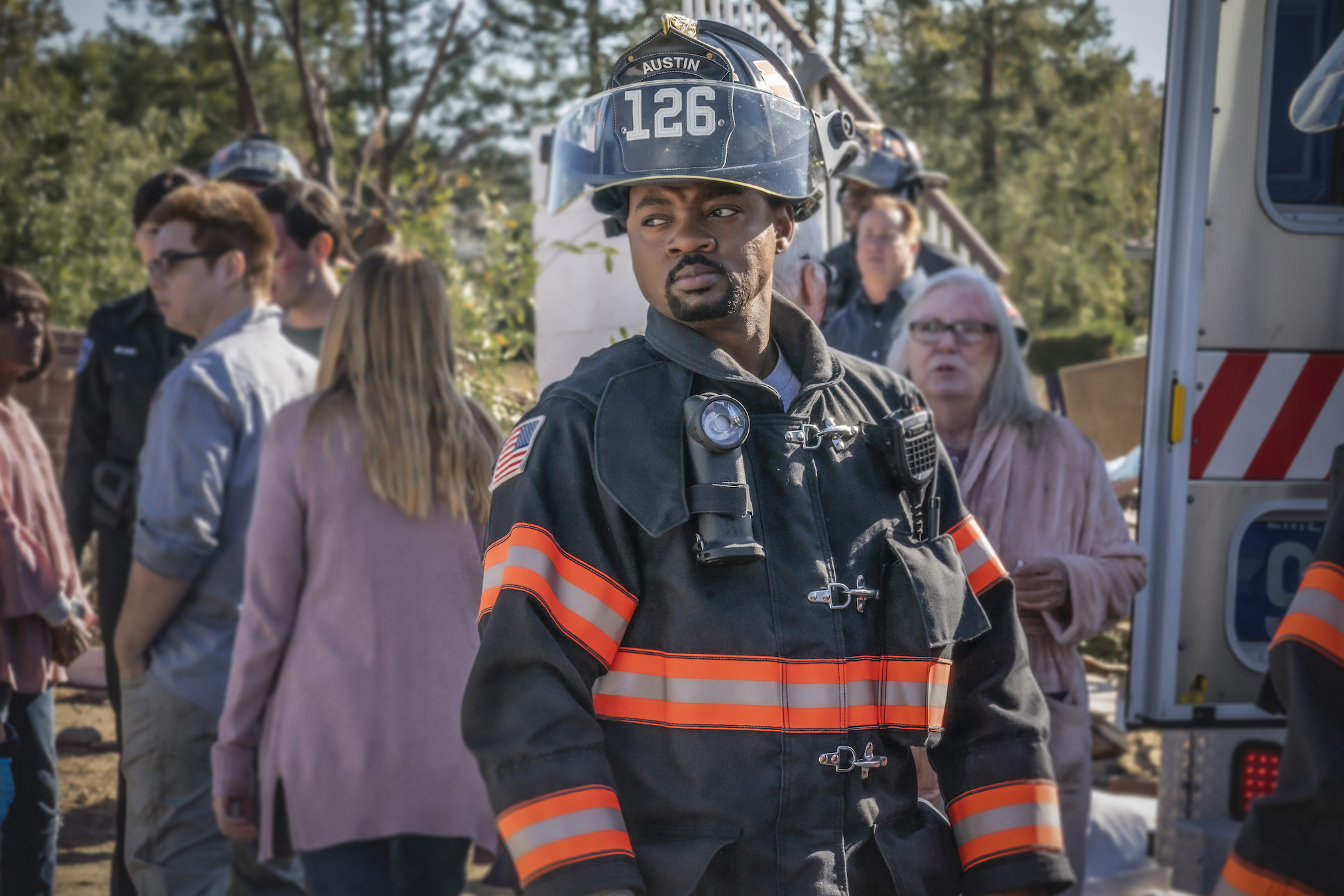
Brian Michael Smith as Paul Strickland on 9-1-1: Lone Star (Jack Zeman/FOX)
The Present
Smith admits he was initially a bit “concerned” about how his character was revealed as trans on Fox spinoff 9-1-1: Lone Star — that was, until “he shows up kicking ass” before talking about who he is, as part of the job interview montage. “It allowed my character to look at something that had been problematic where he was at was back in Chicago … and he had started to buy into feeling that his transness was a detriment,” he says. “Here in this new place, in this interview, it was rephrased to him as an asset.”
He also liked that the writers let him take the lead with Paul, specifically noting when they allowed him to change the language in the conversation with his date. It went from “there’s something I haven’t told you” to “there’s something we haven’t talked about yet,” which “took away that whole secretiveness,” he says, adding that he liked they didn’t show the conversation because it allows the audience to think about how difficult that conversation is.
Another example of LGBTQ domesticity a sci-fi series is with Star Trek: Discovery, which dives into the home life of Rapp and Cruz’s characters, showing such simple moments as the two brushing their teeth and not even talking about their relationship. It was the first time the series revealed the two were in a relationship and done in an “elegant” and meaningful” way, Rapp says. That moment of “domestic connection … landed far more powerfully than I think either of us realized.”
Cruz likes that we met the characters in their occupations before learning about the relationship. “First and foremost, they’re heroes helping as part of this team to save the world. Oh, and by the way, they are in love and have been together forever.”
Cruz then pointed out Hulu’s original Love, Victor as a show that “is such a great balance of a Latino LGBTQ experience,” before also citing FX’s Pose as another example of the diversity of stories currently on TV.
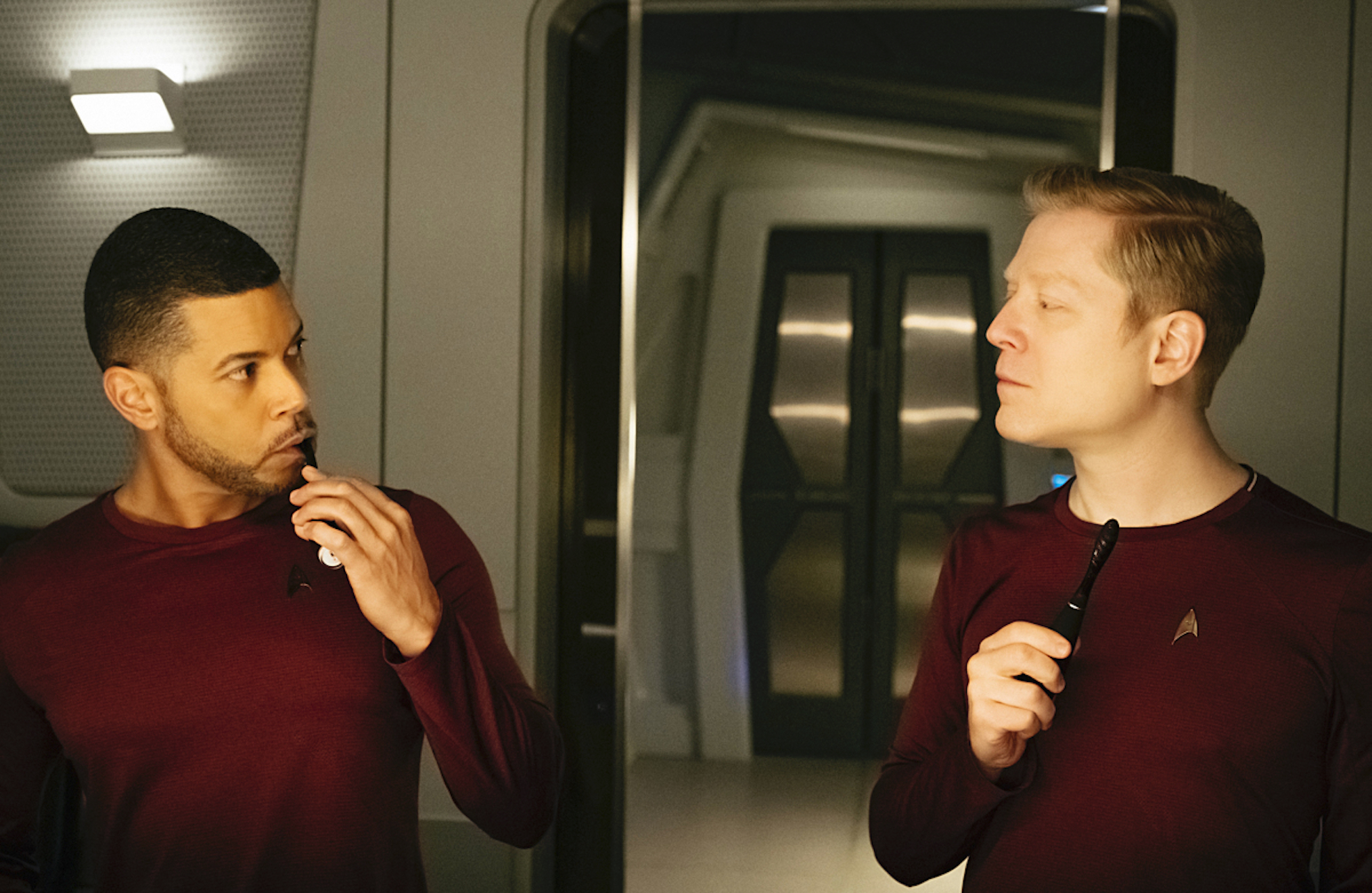
Wilson Cruz as Dr. Hugh Culber and Anthony Rapp as Lieutenant Paul Stamets in Star Trek: Discovery (Jan Thijs/CBS)
The Future
Looking ahead, Rapp is hoping to see more non-binary stories on TV, while Smith wants to see more diversity in trans stories (like trans disabled people and trans people with immigrant backgrounds) and more queer representation in fantasy and action movies (as the lead, not just the sidekick).
Wilson wants to see more people of color who are queer in joyful situations as well as more LGBTQ — especially trans — people behind the camera. Maslany agrees, extending that to “different actual physical points of view that the camera to take to be inside of an experience as opposed to objectifying it.” The rest of the panelists chime in that they want to see more trans people in the writers room and on set. “I’m so sick of showing up to set and feeling so alone,” Clayton says. “It’s very isolating.”
And she also wants to audition for roles beyond those that are trans. “I’ve been told, time and time and time again, that I’m not trans enough to even f**king play trans,” Clayton says. “I want to be given the same opportunities and audition and it’s starting to happen for me, and I’m very grateful because I worked very hard to get here. But I want to see nonbinary and trans-identified people playing all kinds of characters and not just there to talk about their gender or their transition or their surgeries.”
If you want to read more Like this articles, you can visit our Social Media category.
if you want to watch Movies or Tv Shows go to Dizi.BuradaBiliyorum.Com for forums sites go to Forum.BuradaBiliyorum.Com
